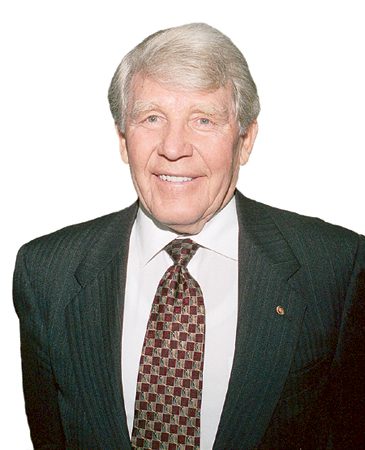
In a BYU Alumni webinar, ethics guru and Marriott School professor Brad Agle offered guidance on how to prepare for ethical challenges in the workplace.
A few weeks before Bradley R. Agle (BS ’86) turned 50, his daughter challenged him to a marathon.
“Have you seen those people who finish one?” asked the George Romney Endowed Professor in BYU’s Marriott School. He didn’t accept the challenge, opting instead for a 15-mile hike up Mt. Timpanogos to celebrate the milestone.
Agle prepared by walking, doing partial Mt. Timp climbs, and hiking other trails. He finished the climb in the end because he learned how to train.
“You don’t just climb without thinking about it,” said Agle, who applies the same idea of preparation to workplace integrity.
“Climbing Mt. Timpanogos across snow fields might not be a good experience if you haven’t prepared for it. Likewise, if you haven’t planned to meet ethical challenges in the workplace, the experience might not be good. You might do things you wish you hadn’t. You ought to be proactive and maintain strong ethics on the job.”
Agle, a business ethics expert who has published extensively on the subject, spoke at a BYU Alumni webcast and shared five principles to help you prepare for ethical challenges:
1. Engage in proactive behavior; deliberate, intentional preparation is necessary to preserve integrity.
2. Know your values, and write them down.
3. Build a social structure that facilitates ethical behavior.
4. Provide consistent nourishment to mind and spirit.
5. Develop a reputation as an honest, ethical person.
“Your own thoughts about morality, your own philosophy and moral identity will influence the way you behave,” Agle said, “but the social structure around you will also influence your behavior. You need to update your values and goals periodically as you move along in life.”
Even when you are armed with the five strategies, Agle emphasized that your ethics will be challenged. “You aren’t going to go through life avoiding issues. That is why you must know and review your values and commit to live them.”
He said that while most people think they know their values, when he teaches various ethics cases, people are surprised with the dilemmas that emerge.
“We assume most BYU students come to campus with a core of integrity,” Agle said. “The way to really determine values, however, comes when they are put into practice. We give our students difficult cases, such as one where honesty and loyalty are in conflict. They get an understanding of where their values are. They then must decide on behavior that is effective, is not going to get them fired, and does not destroy relationships.”
The model also transcends personal integrity. “It’s not just about my own behavior, but it’s about being a leader who influences others for good,” Agle emphasized. “You are concerned not only about your own integrity but also the integrity of the people who work for you.”
Watch Brad Agle’s webcast about integrity in the workplace at more.byu.edu/agle.









